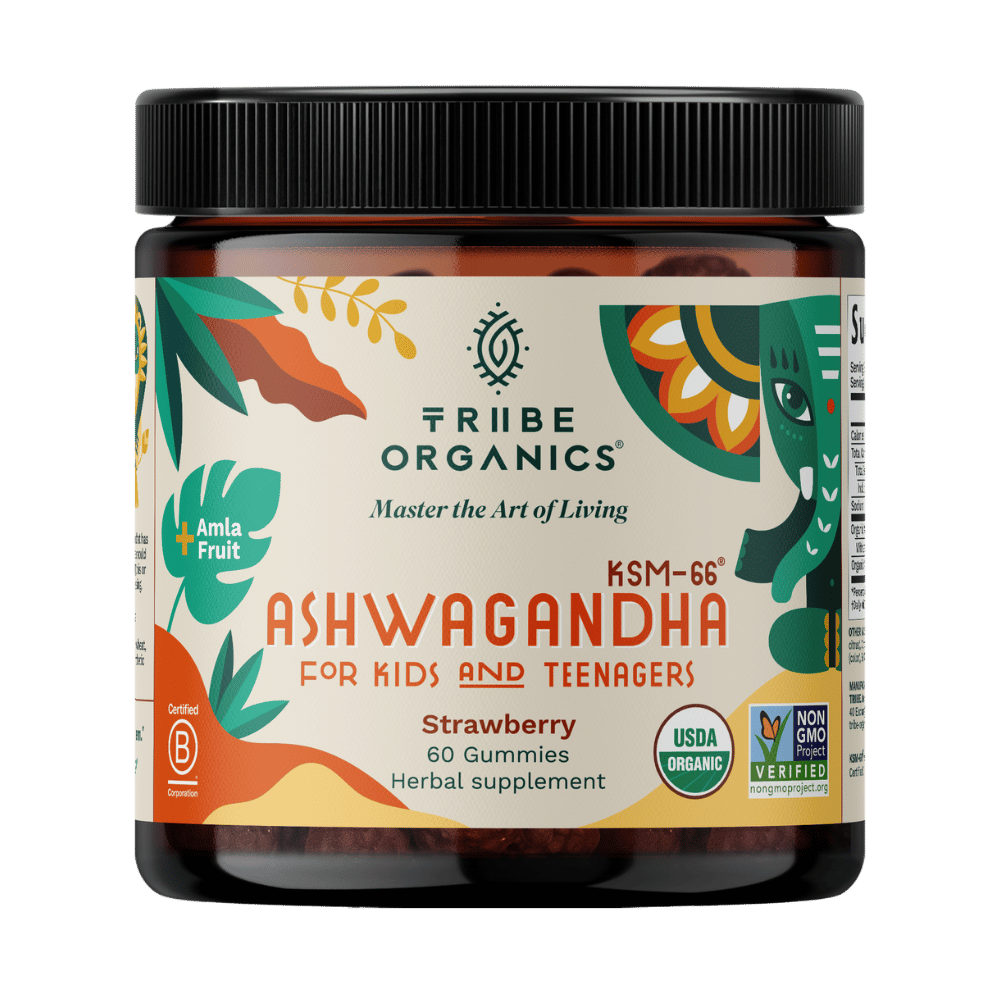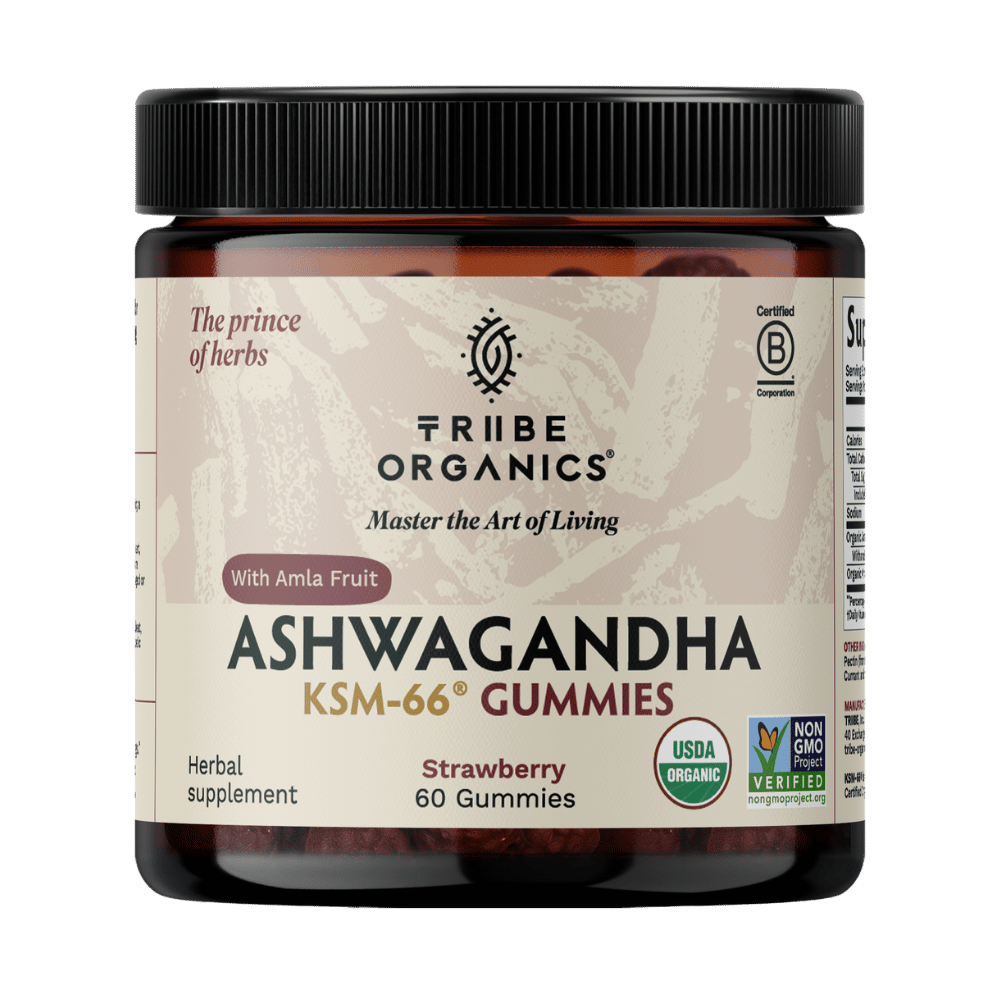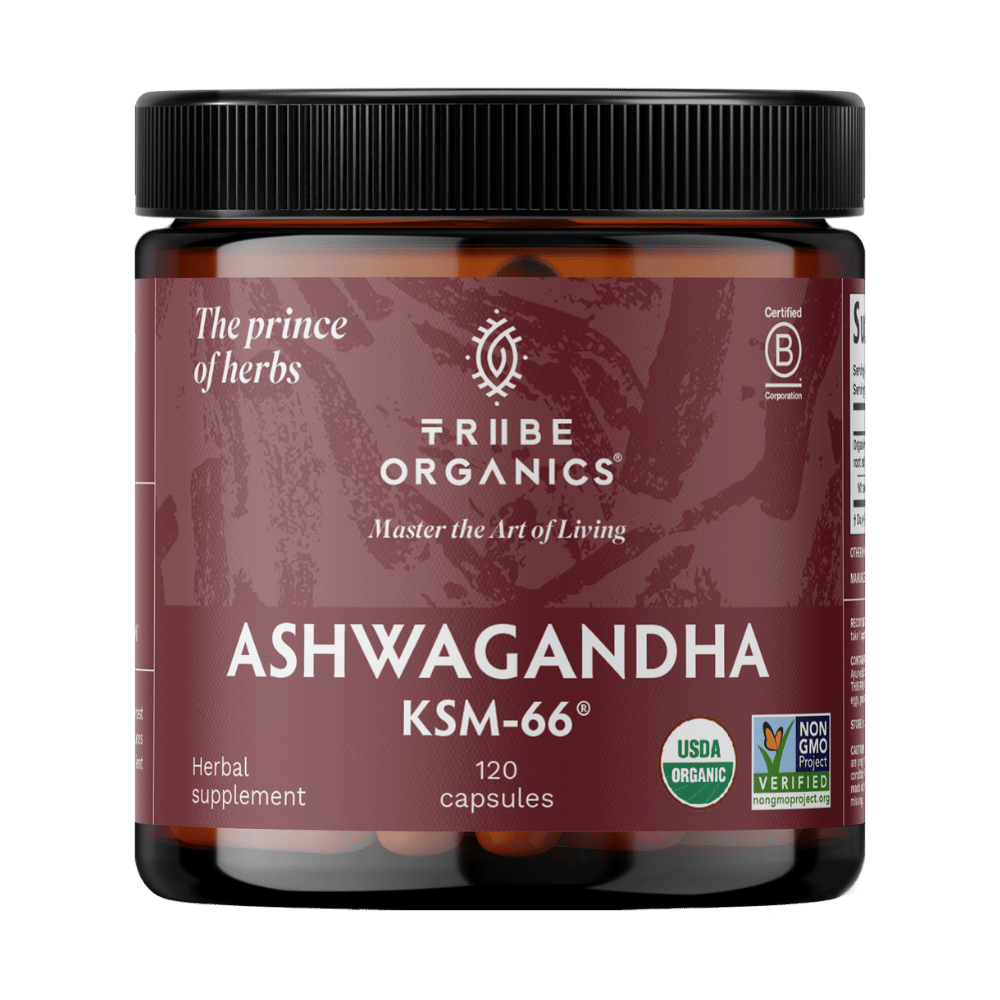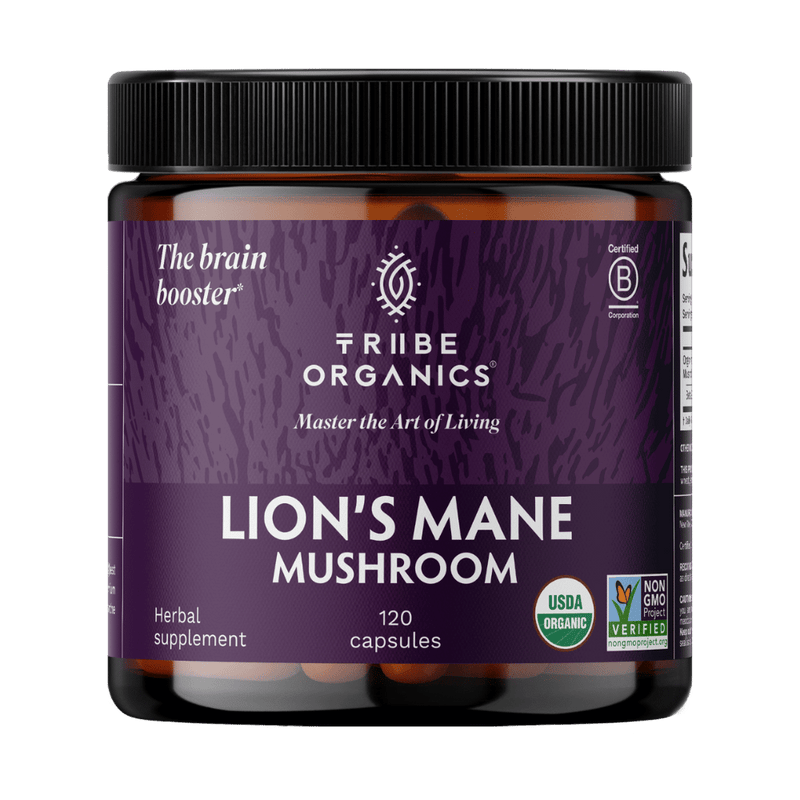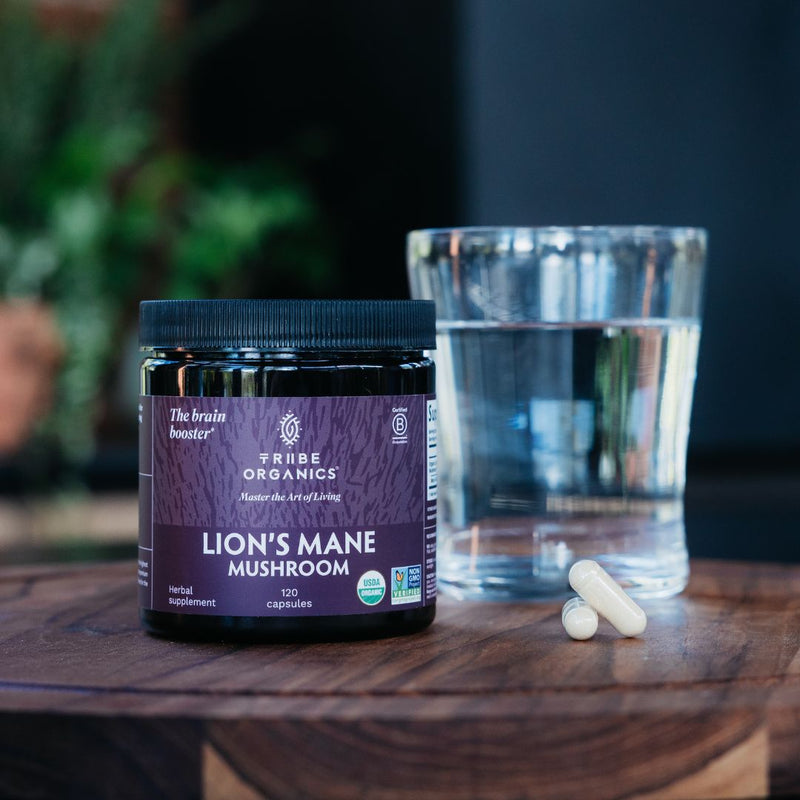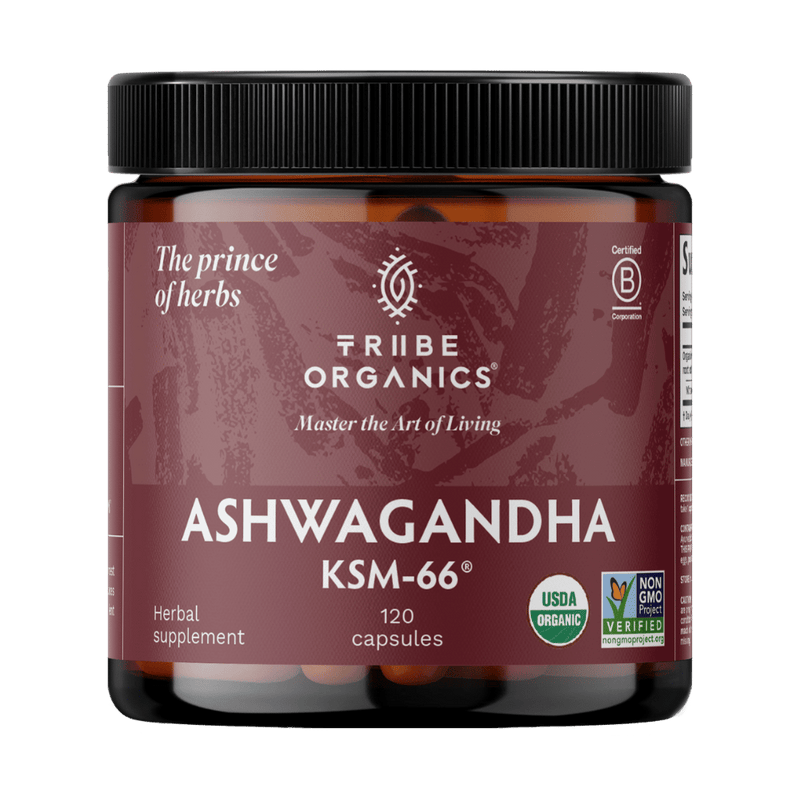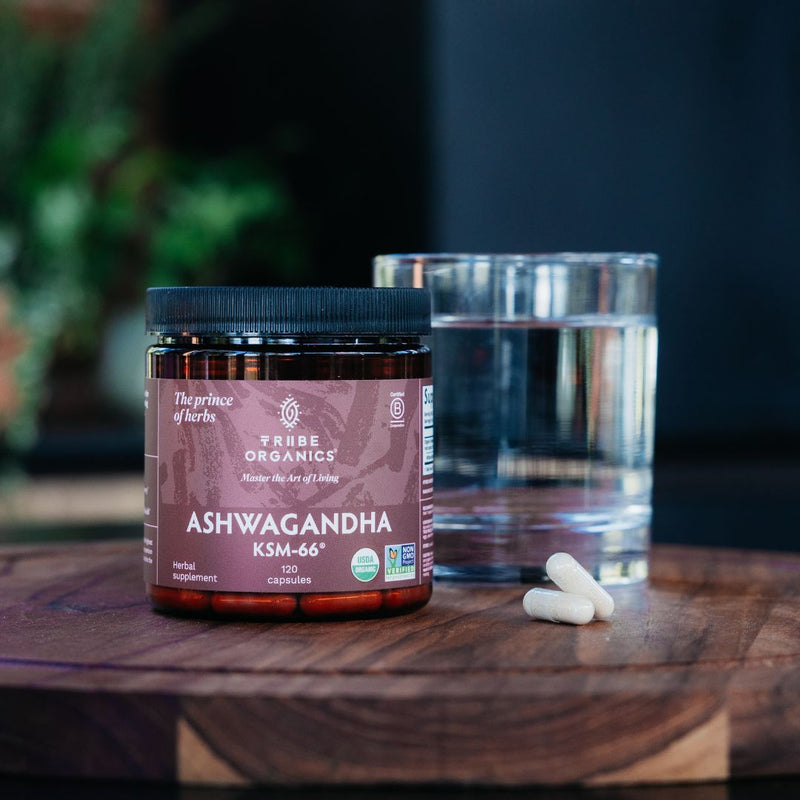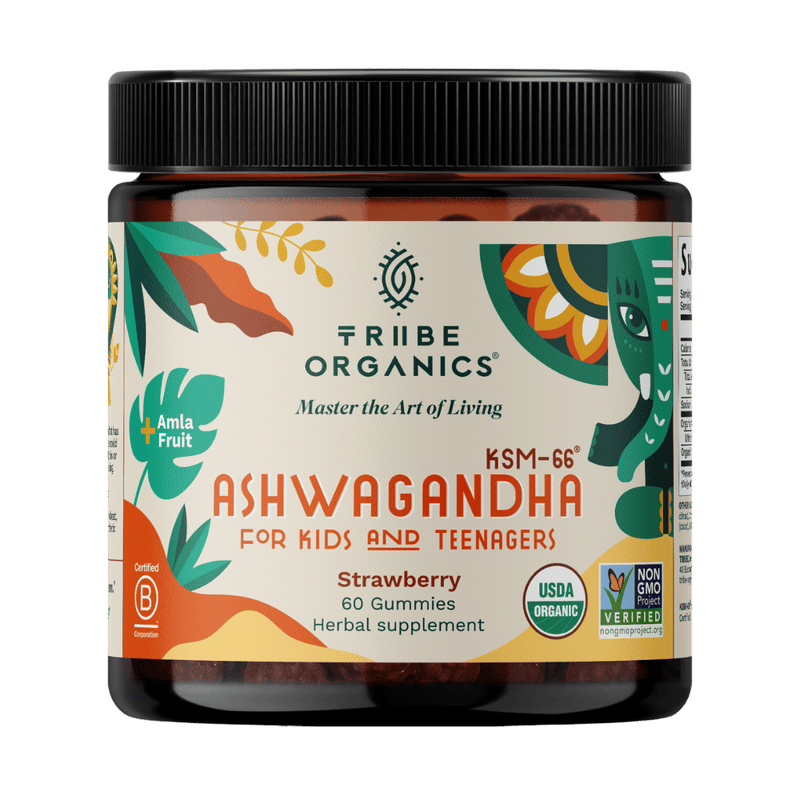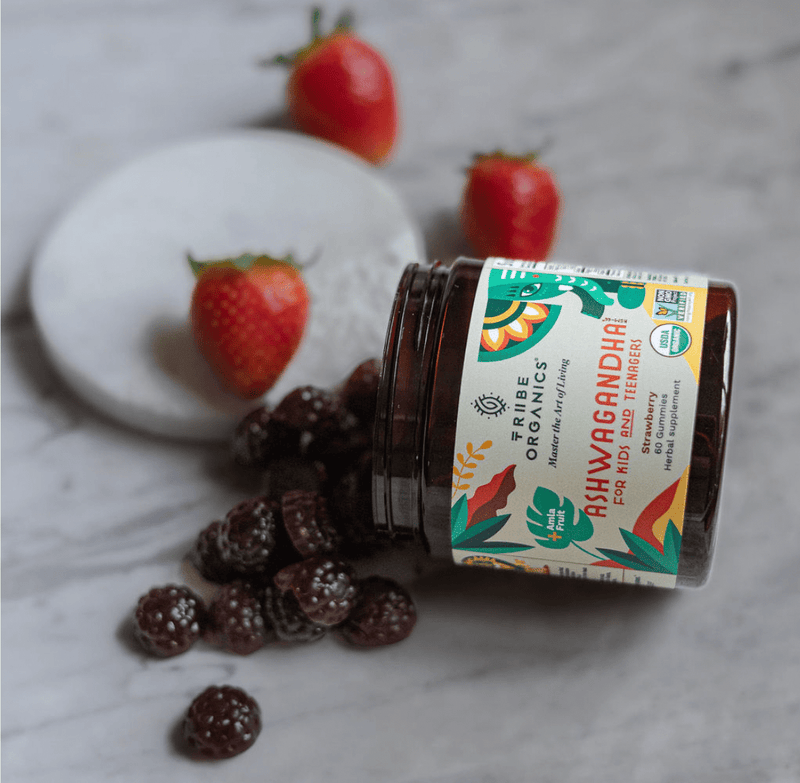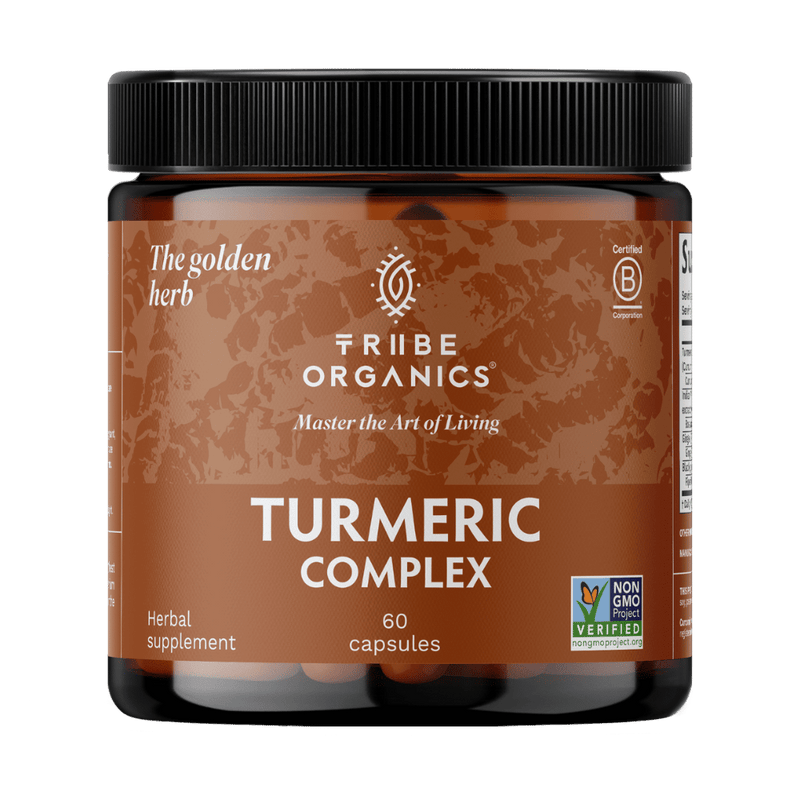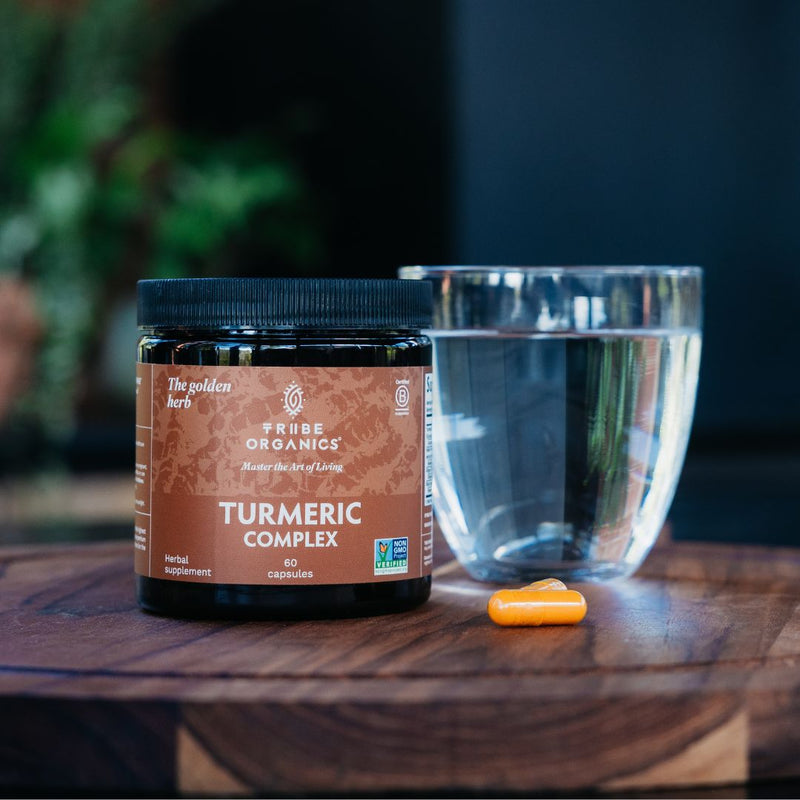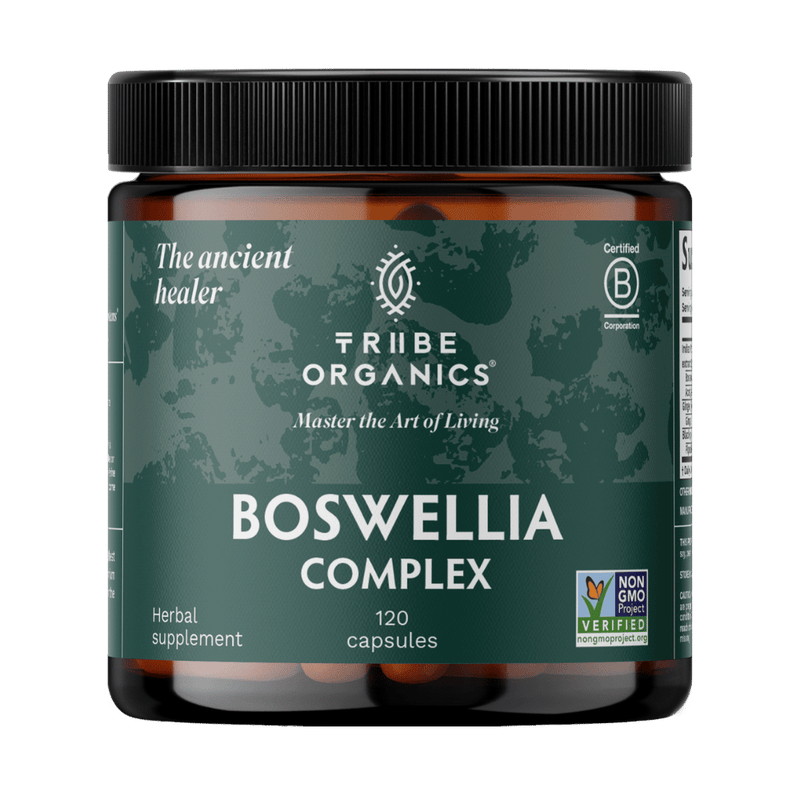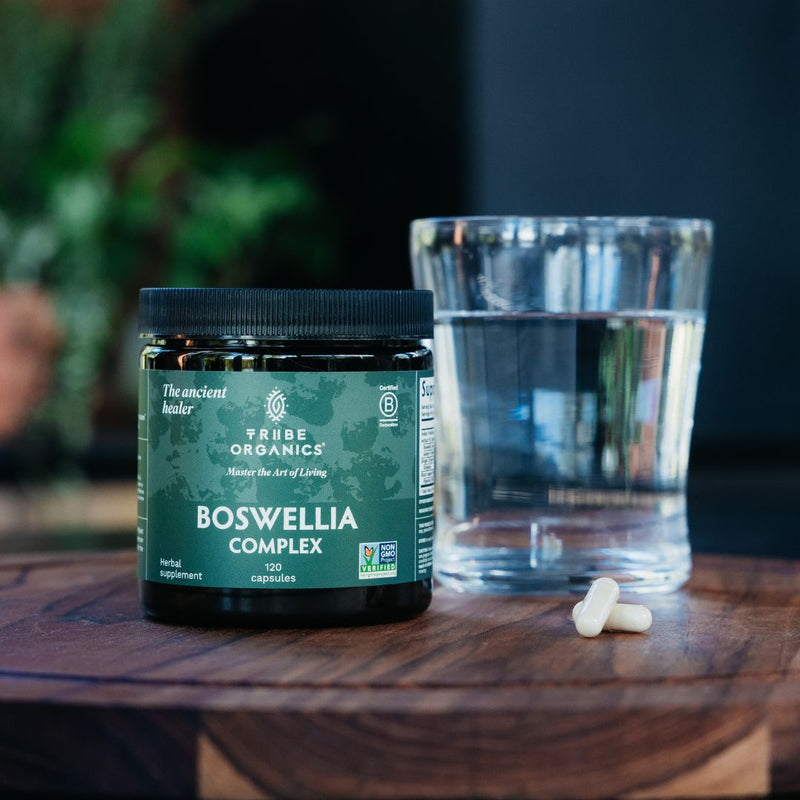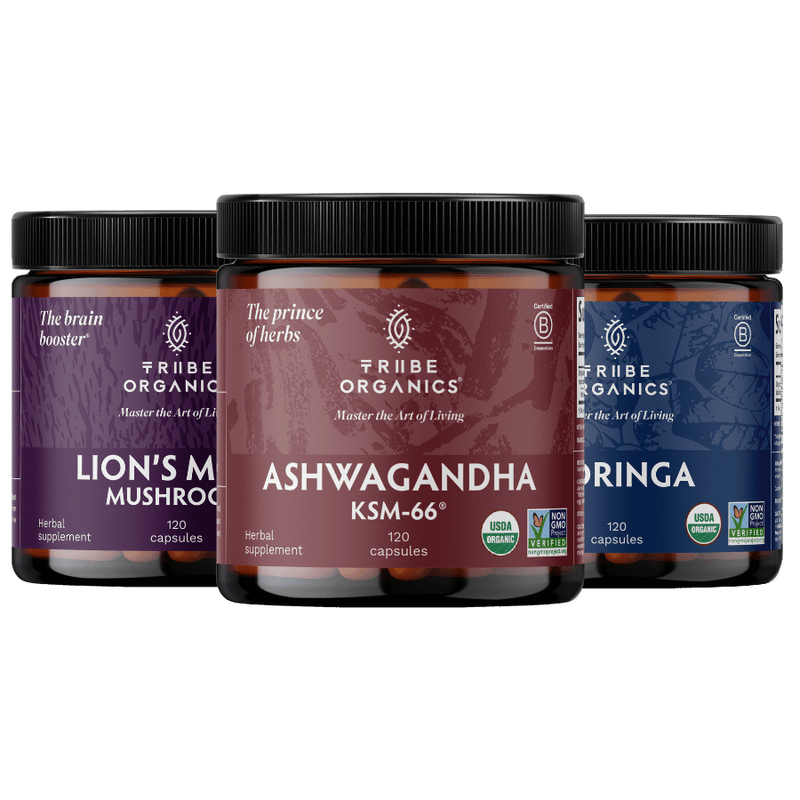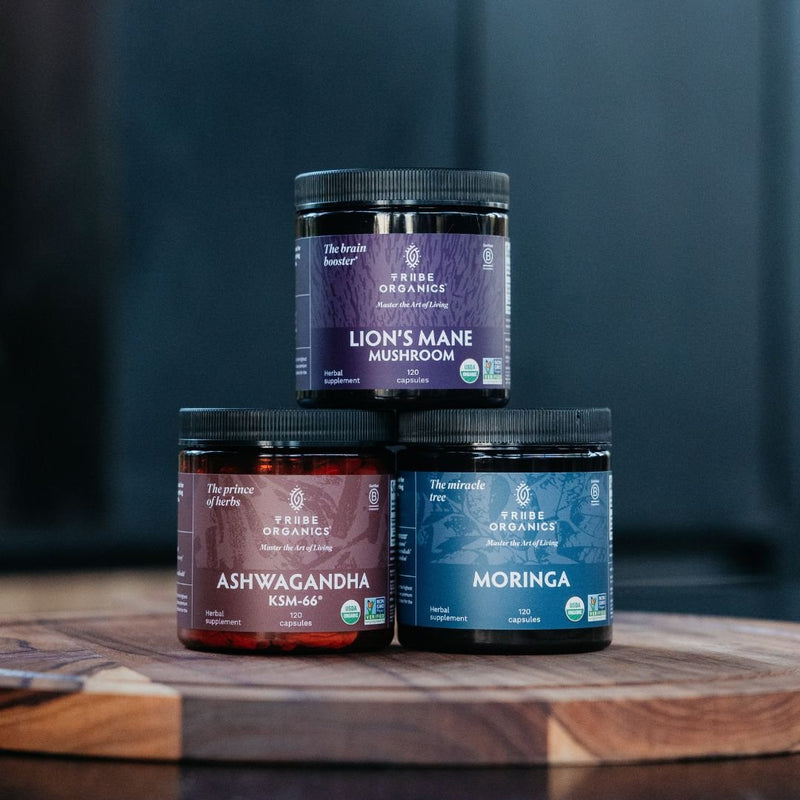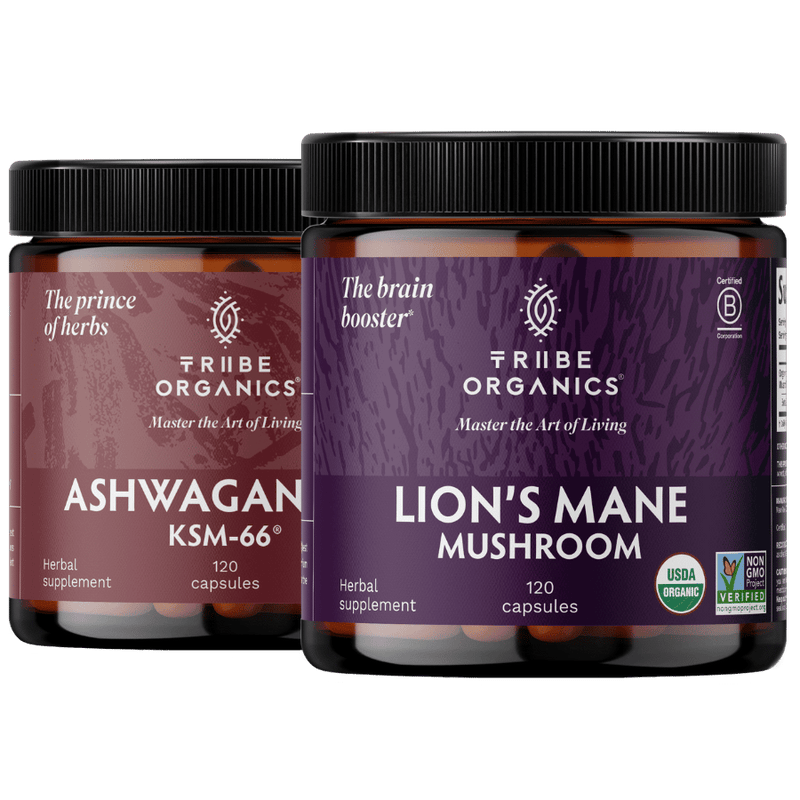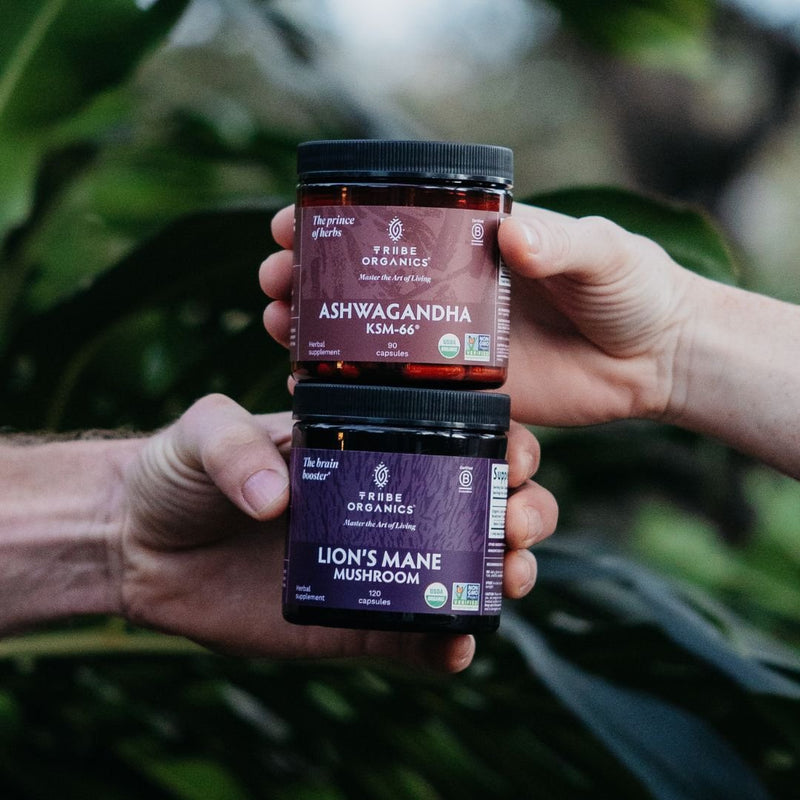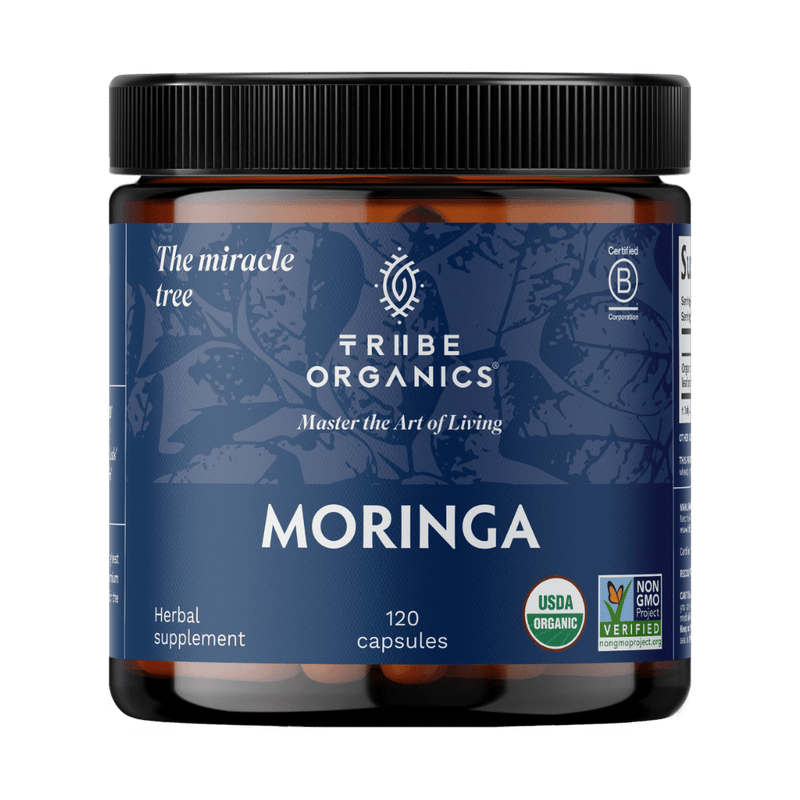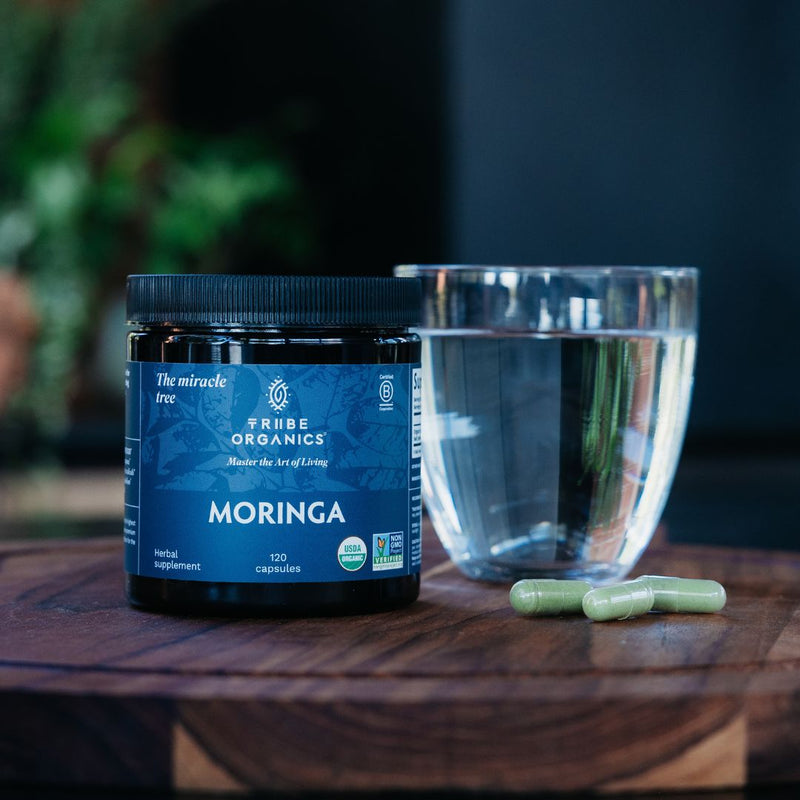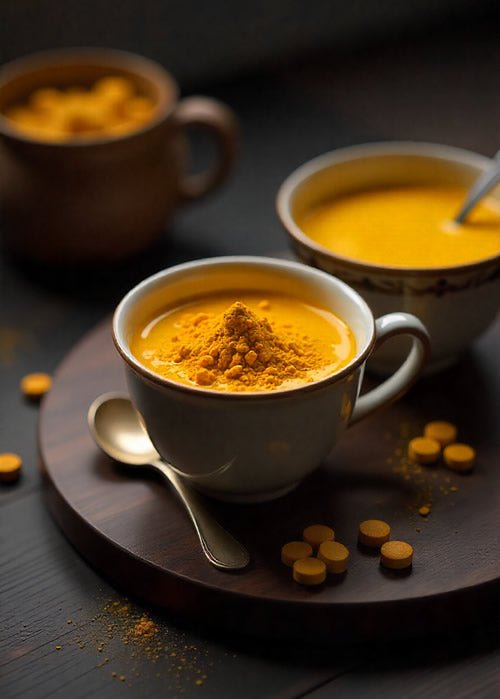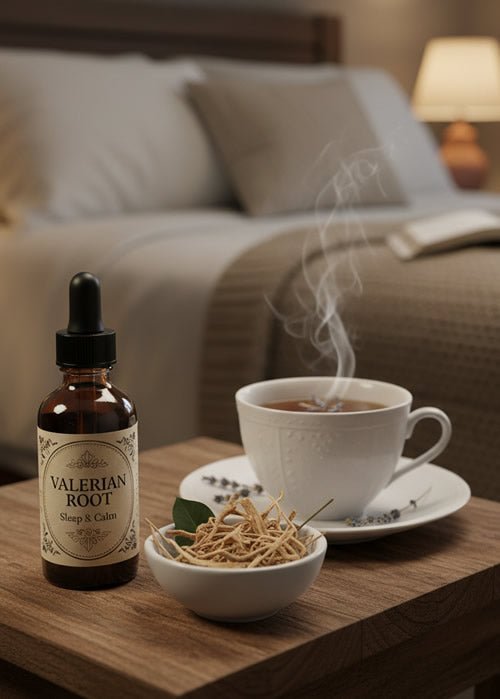Key Takeaways
- Ashwagandha can increase muscle strength by up to 46kg in bench press and 14.5kg in leg extension over 8 weeks when combined with resistance training
- Adaptogenic herbs like Rhodiola and Cordyceps enhance endurance, reduce fatigue, and support faster recovery
- Anti-inflammatory herbs such as turmeric and boswellia reduce exercise-induced muscle soreness and joint pain
- Herbs work by regulating stress hormones, boosting testosterone, improving oxygen utilization, and reducing inflammation
- Most muscle-building herbs are safe when used properly, with recommended dosages ranging from 200-600mg daily depending on the specific herb
When ashwagandha supplementation increased bench press strength by 46kg compared to just 26kg with placebo in a placebo controlled clinical study, it marked a turning point in how we understand natural herbs for muscle growth. This wasn’t just traditional ayurvedic medicine folklore—this was scientific evidence demonstrating that certain natural herbs could significantly promote muscle growth and enhance athletic performance.

The pursuit of muscle development has led many healthy adults to explore alternatives to anabolic steroids and synthetic supplements. Research suggests that specific botanical compounds can improve muscle recovery, reduce muscle soreness, and support the body adapt to intense workouts through mechanisms that complement rather than replace a solid resistance training program.
The Science Behind Herbs for Muscle Development
The scientific evidence supporting herbs for muscle growth centers on their ability to influence multiple pathways simultaneously. Unlike single-target dietary supplement options, natural herbs contain complex mixtures of bioactive compounds that work synergistically to enhance muscle tissue development and physical performance.
Adaptogenic herbs represent a unique category within herbal supplement research. These potent adaptogenic herb varieties help the nervous system manage stress response more effectively, leading to improved exercise performance and better recovery from exercise induced muscle damage. When cortisol levels remain elevated from chronic stress, muscle building becomes significantly more challenging—adaptogens help restore hormonal balance.
The chemical composition of muscle-building herbs includes specialized compounds like withanolides in ashwagandha, ginsenosides in ginseng, and curcuminoids in turmeric. These phytonutrients demonstrate positive effects on muscle protein synthesis, testosterone production, and the reduction of exercise induced inflammation that can impair muscle repair.
Clinical practice has shown that herbs work through several key mechanisms:
- Hormone optimization: Naturally supporting serum testosterone levels while reducing stress hormone cortisol
- Enhanced recovery: Providing anti inflammatory compounds that accelerate muscle repair
- Improved energy production: Supporting mitochondrial function for better endurance exercise performance
- Stress adaptation: Helping the body cope with the physical demands of resistance training
A comprehensive review of randomized controlled trials reveals that while herbs may not match the dramatic effects of anabolic steroids, they offer sustainable benefits with minimal adverse effects when used appropriately.
Top Evidence-Based Herbs for Muscle Growth
Ashwagandha (Withania somnifera)
Ashwagandha stands as the most researched herb for muscle development, earning its reputation as “indian ginseng” in traditional medicine systems. Clinical studies demonstrate remarkable results when ashwagandha supplementation is combined with a structured resistance training program.

In the most significant study, participants taking ashwagandha root extract showed muscle strength gains of 46.05kg on bench press compared to 26.42kg in the placebo group over eight weeks. Leg extension strength increased by 14.5kg versus 9.8kg for placebo. These results represent some of the most impressive muscle mass and strength improvements documented with any natural supplement.
The mechanisms behind ashwagandha’s effectiveness include:
- Testosterone enhancement: Increases in testosterone levels of up to 17% in healthy men
- Cortisol reduction: Lowering stress hormone levels by 23-27%
- Muscle mass increases: Significant gains in muscle size measured by body composition analysis
- Improved recovery: Faster healing from delayed onset muscle soreness
The optimal dosage for muscle building is 300mg of standardized ashwagandha root extract taken twice daily (600mg total) for a minimum of 8 weeks. Look for supplements standardized to contain at least 5% withanolides for maximum potency.
Cordyceps (Cordyceps sinensis)
Cordyceps represents one of nature’s most powerful tools for enhancing cardiorespiratory endurance and oxygen utilization in muscle tissue. This functional mushroom has been prized in traditional medicine for its ability to support athletes during demanding training periods.
Research demonstrates that cordyceps supplementation can improve aerobic capacity by 15-20% within six weeks. The mushroom enhances energy production at the cellular level by supporting mitochondrial ATP synthesis, which directly translates to better sport performance and training capacity.
Key benefits for muscle development include:
- Enhanced oxygen delivery: Improved blood flow and oxygen utilization during exercise
- Increased endurance: Better performance during high-intensity, longer-duration workouts
- Fatigue resistance: Reduced perceived exertion during training sessions
- Cellular energy support: Optimized ATP production in muscle cells
For muscle building purposes, take 1-3g of cordyceps extract daily, preferably 30 minutes before workouts to maximize endurance benefits during resistance training sessions.
Rhodiola Rosea
Rhodiola rosea demonstrates unique adaptogenic properties that make it invaluable for managing training stress and optimizing workout quality. This hardy arctic plant helps the body adapt to physical stressors while maintaining performance under challenging conditions.
Studies show rhodiola can reduce muscle damage markers by up to 40% following intense exercise sessions. The herb also supports mental performance and focus during training, helping athletes maintain proper form and intensity throughout their workouts.
Dosage recommendations vary based on training goals:
- For endurance: 200-400mg taken 30 minutes before workouts
- For strength training: 1500-2400mg daily, divided into two doses
- For recovery: 300-600mg taken post-workout
The herb works by modulating cortisol response and supporting the hypothalamic-pituitary-adrenal axis, which governs stress adaptation and recovery processes essential for muscle development.
Turmeric and Curcumin
Turmeric’s active compound curcumin provides potent anti inflammatory effects that significantly reduce exercise-induced muscle soreness and support joint health during intense training periods. This golden spice has become increasingly popular among athletes seeking natural alternatives for managing exercise induced muscle damage.

Research shows curcumin supplementation can reduce delayed onset muscle soreness by 25-40% and decrease inflammatory markers following resistance training. The compound also protects against free radical damage that can impair muscle repair and growth.
For optimal results, take 500-1000mg of curcumin extract daily with black pepper (piperine) to enhance absorption. The anti inflammatory properties work synergistically with resistance training to promote faster recovery and reduce joint pain that might otherwise limit training frequency or intensity.
Supporting Herbs for Recovery and Performance
American Ginseng
American ginseng offers unique benefits for muscle recovery enhancement through its ability to reduce exercise-induced damage and support cellular repair processes. Unlike its Asian counterpart, American ginseng provides more gentle, sustained energy without overstimulation.
Studies demonstrate that 200mg of American ginseng taken before workouts can reduce muscle damage markers and improve perceived recovery between training sessions. The ginsenoside compounds support energy production while helping muscles maintain excitability during prolonged exercise.
Functional Mushrooms
Beyond cordyceps, several other functional mushrooms provide valuable support for muscle development and overall well being:
Lion’s Mane: Enhances mental performance and workout focus, leading to better training quality and mind-muscle connection during resistance training sessions.
Chaga: Supports muscle regeneration and helps prevent muscle wasting through its high antioxidant content and immune system modulating properties.
The adaptogenic stress response modulation provided by these mushrooms helps athletes maintain consistent training without overreaching or burnout.
Boswellia (Boswellia serrata)
Boswellia serrata provides targeted support for joint health and exercise-induced pain reduction, making it particularly valuable for athletes engaged in high-impact training activities. The herb’s anti inflammatory compounds work differently than curcumin, offering complementary benefits.
Research shows boswellia can reduce joint pain by 30-50% in active individuals while supporting cartilage protection during repetitive stress. When combined with turmeric, the synergistic effects provide comprehensive inflammation control that supports both muscle development and joint longevity.
Standard dosing ranges from 300-500mg of boswellia extract (standardized to 65% boswellic acids) taken twice daily with meals.
How Herbs Support Muscle Growth Mechanisms
Understanding how herbs promote muscle growth requires examining their effects on fundamental physiological processes. Unlike synthetic compounds that target single pathways, natural herbs work through multiple interconnected mechanisms that support comprehensive muscle development.
Hormone Regulation: Many muscle-building herbs influence the endocrine system to optimize anabolic hormone production. Ashwagandha increases testosterone levels while simultaneously reducing cortisol, creating an ideal hormonal environment for muscle protein synthesis. This dual action helps the body maintain an anabolic state even during periods of training stress.
Protein Synthesis Enhancement: Botanical compounds can directly stimulate muscle protein synthesis pathways. Ginsenosides from ginseng activate mTOR signaling, while withanolides from ashwagandha enhance amino acid uptake into muscle cells. This cellular-level support translates to improved muscle repair and growth following resistance training.
Recovery Acceleration: The anti inflammatory and antioxidant effects of herbs like curcumin and boswellia help reduce exercise induced muscle damage and accelerate the repair process. By minimizing inflammatory stress, muscles can focus energy on rebuilding rather than damage control.
Energy Metabolism: Herbs support mitochondrial function and ATP production, providing the cellular energy necessary for both intense workouts and recovery processes. Cordyceps, in particular, enhances oxygen utilization and energy production capacity.
Stress Adaptation: Adaptogenic herbs help the nervous system and endocrine system maintain homeostasis during training stress. This allows for more consistent, high-quality workouts while supporting better recovery between sessions.
Dosage Guidelines and Usage Recommendations
Proper dosing represents a critical factor in achieving optimal results from herbs for muscle growth. Most herbal supplements require standardized extract concentrations to ensure consistent potency and bioavailability of active compounds.
Standardized Extract Considerations
Look for supplements that specify:
- Extraction ratios (e.g., 10:1 means 10 pounds of raw herb produced 1 pound of extract)
- Active compound percentages (e.g., 5% withanolides for ashwagandha)
- Third-party testing for purity and potency verification
Timing Recommendations
Pre-workout dosing works best for:
- Rhodiola (200-400mg, 30 minutes before training)
- Cordyceps (1-2g, 30-60 minutes before exercise)
- American ginseng (200mg, 45 minutes pre-workout)
Daily maintenance dosing suits:
- Ashwagandha (300mg twice daily with meals)
- Curcumin (500-1000mg daily with black pepper)
- Boswellia (300-500mg twice daily)
Post-workout applications benefit from:
- Anti inflammatory herbs like turmeric taken within 2 hours post-exercise
- Adaptogenic blends to support recovery and stress management
Cycle Protocols
To prevent tolerance development and maintain effectiveness:
- Use herbs for 8-12 week cycles followed by 2-4 week breaks
- Rotate different adaptogenic herbs rather than using the same ones continuously
- Monitor body weight, energy levels, and training performance to assess effectiveness
Combination Strategies
Synergistic effects can be achieved by combining:
- Ashwagandha + Rhodiola for stress management and strength
- Curcumin + Boswellia for comprehensive inflammation control
- Cordyceps + Ginseng for enhanced endurance and energy
Safety Considerations and Contraindications
The safety profile of most muscle-building herbs rates as “good” to “excellent” when used according to research-based protocols. However, understanding potential interactions and contraindications ensures safe, effective supplementation.
General Safety Profile
Clinical studies consistently demonstrate minimal adverse effects from herbs like ashwagandha, rhodiola, and curcumin when used at recommended doses. Side effects, when they occur, are typically mild and may include:
- Mild gastrointestinal upset (usually resolved by taking with food)
- Occasional headaches during initial adaptation (typically resolves within 1-2 weeks)
- Sleep pattern changes with adaptogenic herbs (usually improves over time)
Potential Drug Interactions
Several herbs may interact with medications:
Ashwagandha: May enhance effects of thyroid medications and blood sugar-lowering drugs Rhodiola: Can interact with antidepressants and diabetes medications Curcumin: May increase bleeding risk when combined with anticoagulant medications Ginseng: Can affect blood pressure medications and blood thinners
Consultation Requirements
Individuals should consult healthcare providers before starting herbal supplementation if they:
- Take prescription medications for chronic conditions
- Have autoimmune disorders or thyroid conditions
- Are pregnant, nursing, or planning pregnancy
- Have scheduled surgeries within 2 weeks
Quality Control Considerations
The unregulated nature of dietary supplement markets means consumers must carefully evaluate product quality. Avoid supplements that:
- Make unrealistic claims about muscle growth rates
- Contain unlisted ingredients or proprietary blends without disclosure
- Lack third-party testing verification
- Include compounds like 5-alpha-hydroxy-laxogenin (illegal and dangerous)
Choose products from reputable manufacturers that provide:
- Complete ingredient disclosure
- Standardized extract concentrations
- Third-party purity and potency testing
- Good manufacturing practice (GMP) certification
Frequently Asked Questions
Shop best sellers
Explore our collection of favorite items that have gained popularity for their quality and satisfaction.

